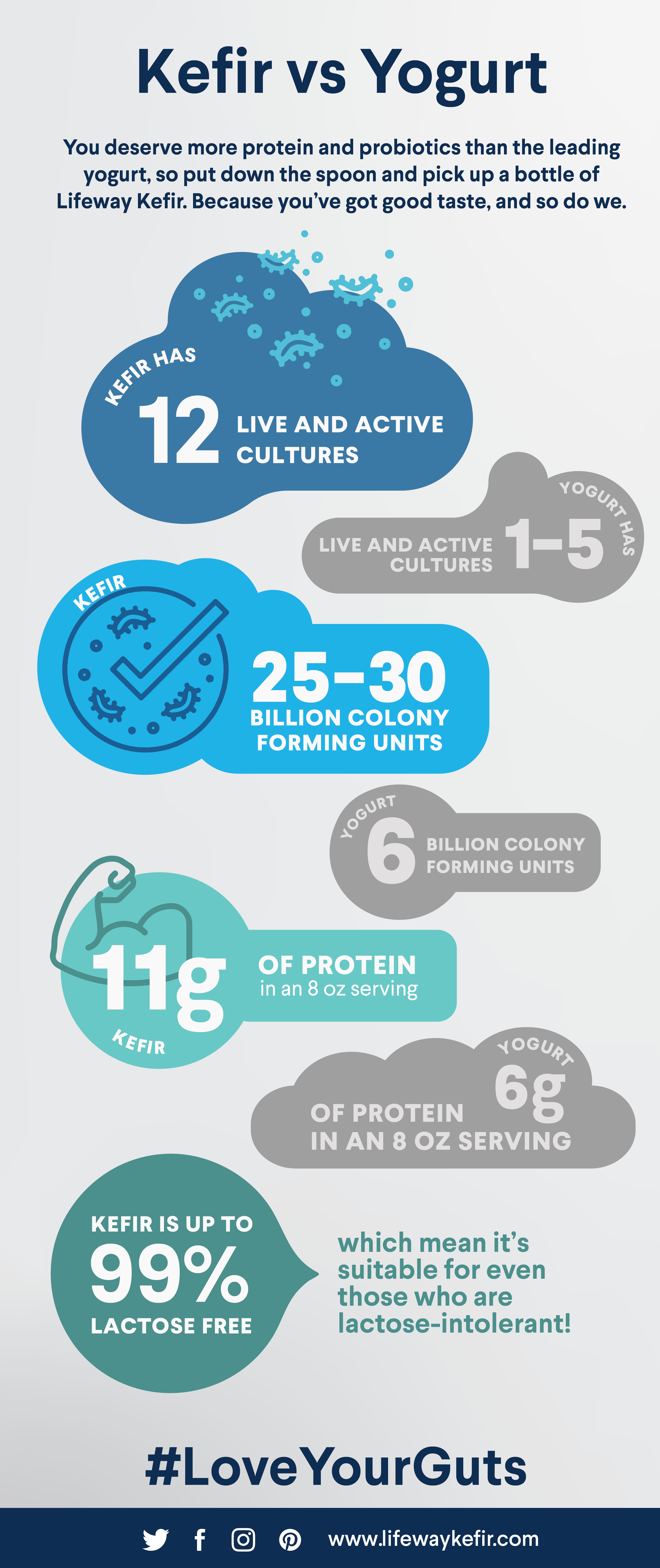What exactly is the difference between kefir and yogurt? They both start out as milk, they’re both fermented, and they’re both tart and tangy — yet they’re completely different products. We’ve got the lowdown on the biggest differences between kefir vs yogurt.
For starters, kefir contains more than double the amount of probiotics! Lifeway Kefir has 12 different strains of live and active cultures and 25-30 billion Colony Forming Units (CFU), while the average yogurt can have anywhere from 1 to 5 strains with 6 billion CFU. Plus, the longer fermentation process of kefir makes it up to 99% lactose-free, which is suitable for most people who are lactose-intolerant. Lifeway also offers 100% lactose-free varieties.
In addition, there are 10 grams of protein in one 1-cup serving of kefir, while the average serving of low-fat yogurt only contains 6 grams of protein. Studies have found that protein is most satiating macronutrient and can help us feel fuller faster.
Our kefir is lightly sweetened with only 1 gram of added sugar per 1 ounce serving (8 grams per cup) and our lactose-free varieties only have 5 grams per cup. Some yogurts can have 4 to 9 grams total added sugars. Long story short, kefir is a nutrient-rich beverage that is diverse in probiotics and has a lot less sugar (and it’s better in smoothies)!
Check out our handy infographic below to get the rundown on the differences between kefir and yogurt:
